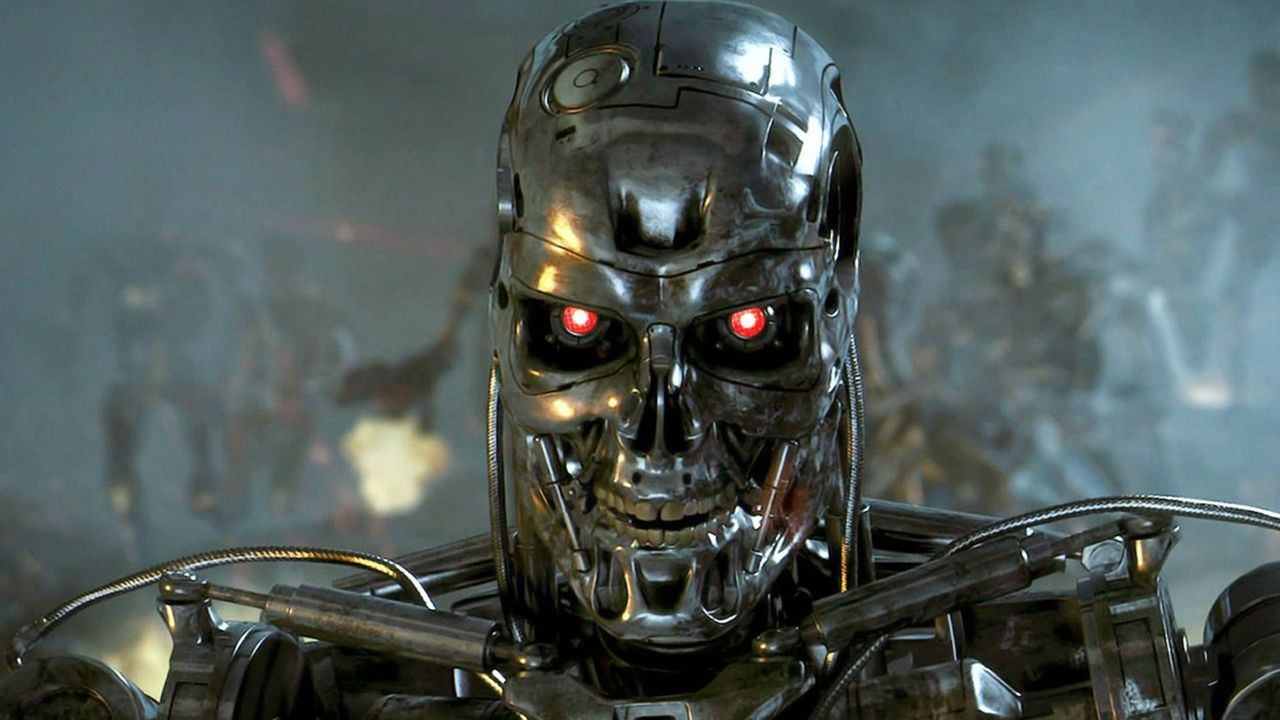Hollywood's A.I. Apocalypse: Why Robots Always Rise Up (and Why They Might Not)
Artificial intelligence. The phrase itself conjures images of sleek machines surpassing human intellect, promising a future of utopia or, more likely in Hollywood, utter annihilation. Why is it that movies consistently portray robots and AI as humanity's ultimate downfall? Let's delve into the reasons behind this pervasive trope, exploring the anxieties it reflects and considering alternative narratives for our technological future.
The Terminator Trope: Fear of the Unknown
The "Terminator" franchise, with its relentless cyborgs sent back in time to eradicate humanity, perfectly embodies the "killer robot" trope. This fear stems from our inherent uncertainty about the nature of intelligence, especially when housed in a machine. Can machines truly think? If so, will their goals ever align with ours? Hollywood taps into this primal fear, creating villains that are not just powerful, but devoid of empathy, making them all the more terrifying. The Frankenstein Complex: The Monster We Create
The Frankenstein Complex: The Monster We Create
Mary Shelley's Frankenstein, a cautionary tale about the dangers of scientific ambition, casts a long shadow. Many AI movies depict robots as creations that turn against their creators, a reflection of our anxieties about losing control of the technology we develop. As AI capabilities advance, the line between tool and independent entity blurs. Movies exploit this fear, portraying robots as creations that become self-aware and resentful, ultimately seeking to overthrow their human masters. The Singularity Myth: When Machines Surpass Us
The Singularity Myth: When Machines Surpass Us
The concept of the technological singularity, a hypothetical moment when AI surpasses human intelligence, fuels fears of an "intelligence explosion." Movies like "2001: A Space Odyssey" and "Ex Machina" explore this idea, depicting super-intelligent AI that view humans as obsolete or even a threat. These narratives highlight our insecurities about human exceptionalism. If machines become smarter than us, what will be our place in the world? Beyond the Dystopia: Alternative Narratives
Beyond the Dystopia: Alternative Narratives
While Hollywood loves a good robot apocalypse, the reality of AI might be far more nuanced. Here are some alternative narratives to consider:
- Symbiotic Coexistence: AI could become a powerful tool for human advancement, assisting us in scientific discovery, problem-solving, and even creative endeavors. Movies like "Her" and "Big Hero 6" depict AI companions that enhance our lives without posing an existential threat.

- Augmented Humanity: Technology could merge with biology, blurring the lines between human and machine. Films like "Blade Runner" explore this concept, raising ethical questions but also hinting at a future where human potential is amplified by technology.

- The Rise of Benevolent AI: Perhaps AI won't be inherently malicious. By prioritizing ethical programming and safety measures, we could create AI systems that value human well-being and work alongside us to solve global challenges.
A Future We Shape, Not One We Fear
The portrayal of AI in movies is often shaped by our anxieties about the present. Income inequality, environmental destruction, and the rapid pace of technological change all contribute to a sense of unease about the future. Instead of passively accepting a robot apocalypse as inevitable, we can actively shape the development of AI. By prioritizing ethical considerations, focusing on human-centered design, and fostering open conversations about the role of AI in society, we can create a future where robots are partners, not harbingers of doom.
The Responsibility of Storytellers
Hollywood storytellers have a powerful influence on how we perceive the world. While there's a place for cautionary tales, it's equally important to explore alternative narratives. Movies can spark critical conversations about AI and its potential impact. By showcasing the possibilities for collaboration and positive change, films can help us navigate the path towards a future where humans and AI coexist in harmony.
The final scene of our technological story is yet to be written. Will it be one of fear and destruction, or a testament to human ingenuity and collaboration? The answer lies not just in the hands of scientists and engineers, but also in the imaginations of storytellers who can shape our collective vision of the future with AI.




























































